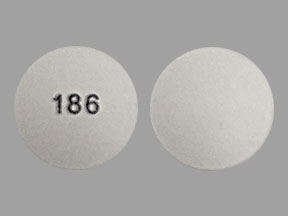Doxylamine/pyridoxine Interactions
There are 320 drugs known to interact with doxylamine/pyridoxine, along with 9 disease interactions, and 1 alcohol/food interaction. Of the total drug interactions, 19 are major, 299 are moderate, and 2 are minor.
- View all 320 medications that may interact with doxylamine/pyridoxine
- View doxylamine/pyridoxine alcohol/food interactions (1)
- View doxylamine/pyridoxine disease interactions (9)
Most frequently checked interactions
View interaction reports for doxylamine / pyridoxine and the medicines listed below.
- Abilify (aripiprazole)
- Aleve (naproxen)
- Ativan (lorazepam)
- Bactrim (sulfamethoxazole / trimethoprim)
- Benadryl (diphenhydramine)
- Claritin (loratadine)
- Colace (docusate)
- Compazine (prochlorperazine)
- Depakote (divalproex sodium)
- Effexor (venlafaxine)
- Iron Sulfate (ferrous sulfate)
- L-Arginine (arginine)
- Latuda (lurasidone)
- Lexapro (escitalopram)
- Lyrica (pregabalin)
- Macrobid (nitrofurantoin)
- Metamucil (psyllium)
- Myrbetriq (mirabegron)
- NAC (acetylcysteine)
- Paracetamol (acetaminophen)
- Prenatal Multivitamins (multivitamin, prenatal)
- Tylenol (acetaminophen)
- Vitamin B12 (cyanocobalamin)
- Vitamin B6 (pyridoxine)
- Vitamin C (ascorbic acid)
- Vitamin D3 (cholecalciferol)
- Vyvanse (lisdexamfetamine)
- Wellbutrin (bupropion)
- Wellbutrin XL (bupropion)
- Zofran (ondansetron)
Doxylamine/pyridoxine alcohol/food interactions
There is 1 alcohol/food interaction with doxylamine / pyridoxine.
Doxylamine/pyridoxine disease interactions
There are 9 disease interactions with doxylamine / pyridoxine which include:
- depression
- anticholinergic effects
- asthma/COPD
- cardiovascular
- renal/liver disease
- glaucoma
- liver disease
- resp depression
- malabsorption
More about doxylamine / pyridoxine
- doxylamine/pyridoxine consumer information
- Compare alternatives
- Pricing & coupons
- Reviews (165)
- Drug images
- Side effects
- Dosage information
- During pregnancy
- Drug class: miscellaneous antiemetics
- En español
Related treatment guides
Drug Interaction Classification
| Highly clinically significant. Avoid combinations; the risk of the interaction outweighs the benefit. | |
| Moderately clinically significant. Usually avoid combinations; use it only under special circumstances. | |
| Minimally clinically significant. Minimize risk; assess risk and consider an alternative drug, take steps to circumvent the interaction risk and/or institute a monitoring plan. | |
| No interaction information available. |
Further information
Always consult your healthcare provider to ensure the information displayed on this page applies to your personal circumstances.


